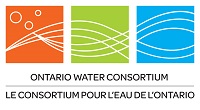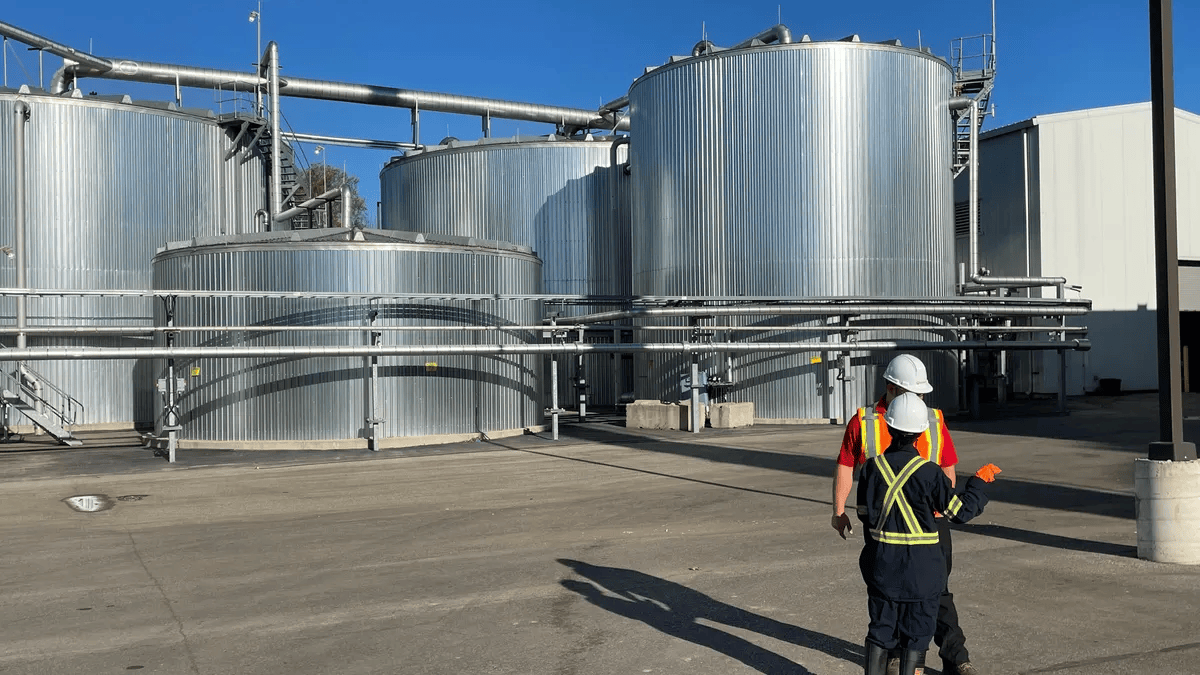In October 2024, the Ontario Water Consortium published “Going Beyond Biogas”, introducing the Waste to Chemicals Alliance – a multi-partner collaboration exploring how anaerobic digestion (AD) can evolve from a conventional energy recovery tool into a platform for producing high-value chemicals from organic waste.
On June 10, 2025, OWC hosted the Alliance’s first public webinar to share progress on this initiative, now entering its final year. The session highlighted key findings in microbial community engineering, product recovery, and process optimization, offering a detailed look at how Canadian researchers and industry partners are working to reimagine the role of AD in the circular economy.
Funded by an NSERC Alliance-Mitacs Accelerate grant, the project is led by the University of Toronto Professors Christopher Lawson and Jay Werber in partnership with Veolia Water Technologies & Solutions, the Ontario Clean Water Agency, CBS Bio Platforms, Invera, the Ontario Water Consortium, and the City of Toronto. The City’s Dufferin and Disco Road organics processing facilities have provided critical real-world feedstock and operational insight throughout the project.
Rethinking the potential of anaerobic digestion
The research team is focused on enabling anaerobic digestion to produce medium-chain fatty acids (MCFAs), a family of oleochemicals used in biofuels, animal feed, polymers, and specialty materials. These compounds carry significantly higher value than biogas and can be derived from locally sourced organic waste, reducing dependency on petroleum and imported tropical oils.
This shift requires a new approach to process design and microbial management. Rather than relying on traditional methanogenesis, the Alliance is designing systems to selectively enrich microbial communities that convert substrates like lactate into MCFAs under controlled conditions. The team is also exploring the use of synthetic biology and automation to improve conversion rates and expand the product spectrum.
A central focus of the project is testing these strategies using real source-separated organics (SSO) from Toronto’s municipal waste stream. Trials conducted with pulp from the City’s Dufferin and Disco Road facilities have demonstrated reliable MCFA production under controlled pH, temperature, and retention time.
The findings show that:
- Seasonal variability in organics affects MCFA composition and yield
- Feedstock source influences microbial community structure and reactor performance
- Continuous removal of MCFAs from the reactor improves yield and prevents microbial inhibition
The team has shown that stable, scalable MCFA production is achievable even with feedstock variation – an essential milestone for future implementation.
To optimize biological performance, the project is leveraging synthetic consortia composed of defined microbial strains with complementary roles. Using a Design-Build-Test-Learn (DBTL) framework, researchers are:
- Isolating and characterizing key functional microbes
- Assembling defined microbial communities for enhanced chain elongation
- Engineering select strains to enable better tracking, higher productivity, and novel product pathways
These synthetic communities are now outperforming natural microbiomes in lab-scale trials and are being evaluated for broader applications, including production of longer-chain fatty acids and alcohols.
Solvent-Free Extraction Using PDMS Membranes
To address the challenge of MCFA recovery, the team has developed a membrane-based separation system that avoids the use of solvents and reduces energy requirements. The process relies on commercially available PDMS (silicone) membranes and includes:
- Solids separation and acid extraction under pH control
- Inline recovery of MCFAs from fermentation broth
- Bipolar membrane electrodialysis (BMED) for final purification and acid-base regeneration
The system is modular, scalable, and compatible with renewable electricity inputs, making it well-suited to circular, low-carbon operating models.
When integrated with the anaerobic digestion process, the membrane-based MCFA extraction system has led to significant gains in performance. By continuously removing MCFAs during production, the team has:
- Doubled MCFA yields
- Reduced microbial inhibition and improved reactor stability
- Increased energy efficiency and purity in the final product stream
Additional improvements, including membrane backflushing and CO₂ removal, are also contributing to more stable long-term operation and better downstream separation.
Commercial readiness and end-use testing
The recovered MCFA oil has now been sent to project partner CBS Bio Platforms, a Canadian company focused on animal feed solutions. As a potential end user, CBS is evaluating the product’s performance and commercial potential for livestock feed additives – particularly those that can be derived from local, renewable sources.
The team has also demonstrated that the final MCFA product can be purified using either BMED or conventional acidification routes, depending on the application. Both options allow for chemical recycling and alignment with closed-loop processing.
In discussion with webinar participants, the project team addressed key questions related to deployment, regulation, and market viability:
- The system is designed to be economically viable without subsidies
- There is strong demand for sustainably sourced MCFAs from chemical and agricultural sectors
- The process is modular and retrofittable, using smaller reactors and shorter retention times than traditional AD
- Engagement with regulators is ongoing, with the team inviting collaboration ahead of planned pilot deployment in 2026
The Waste to Chemicals Alliance is showing what’s possible when microbiology, process engineering, and collaborative innovation converge. By moving beyond biogas toward higher-value, application-ready products, this initiative is creating a blueprint for next-generation anaerobic digestion systems.
With all key milestones on track and commercial partnerships underway, the project is well-positioned to demonstrate the real-world viability of MCFA production from municipal organics – and to help shape Canada’s role in the global circular bioeconomy.


